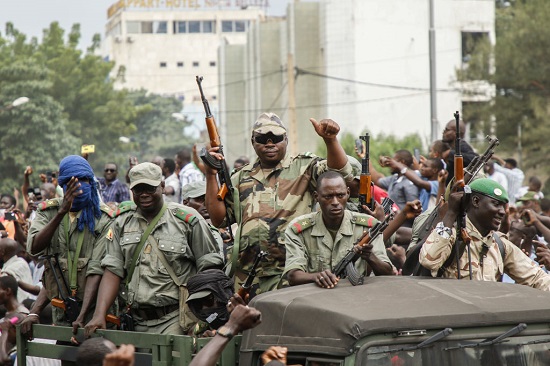Myanmar recently sees internet blackouts followed by a military coup. This is a development that Nigeria and other fragile democracies must keep an eagle eye on to avert the occurrence of such systemic desecration.
A 14-word change to the constitution is all it could take to save Nigeria from the kind of military coup currently occurring in Myanmar.
Since the military seized power earlier this month, the people of Myanmar have endured no less than five internet blackouts, as well as further blocks to social media sites used by democracy campaigners to communicate and coordinate.
This is an increasingly common tactic for repressive regimes – and Nigeria needs to take a lead, regionally and globally, and state publicly that we are a nation committed to democracy, transparency and freedom where the right of the people to internet access will not be removed or restricted.
And the best way to do that would be a modest constitutional amendment.
The situation in Myanmar is horrifying to all lovers of democracy.
The military dictatorship that led the country for more than fifty years from 1962 until 2011 has suddenly returned, with armoured vehicles on the streets and Nobel Peace Prize winner Aung San Suu Kyi, who won elections in November by a landslide, placed once again under house arrest – a condition she previously endured between 1989 and 2010.
The military rulers have already proposed new laws that give them the power to block websites, order internet shutdowns and prevent the online sharing of information. They have also called for internet service providers to surrender user data to the government “for the sake of national security”.
Telenor, Myanmar’s biggest mobile operator has confirmed that it was obliged to shut down its data network at the insistence of the regime.
Don’t think this couldn’t happen here.
The UN’s special envoy to Myanmar, Christine Schraner Burgener, has denounced the internet outage, stating “network blackouts undermine core democratic principles”
These are global principles explicitly built into the Nigerian constitution. But we have to make sure that our nation’s founding document evolves to reflect the times in which we live.
Clause 22 of the Nigerian Constitution states:
“The press, radio, television and other agencies of the mass media shall at all times be free to uphold the fundamental objectives contained in this Chapter and uphold the responsibility and accountability of the Government to the people.”
But there is no mention of the internet.
To men my age, 1999 feels like six months ago. But Nigeria’s constitution is now over twenty years old and was not designed for the digital age.
That is why we need to add fourteen more words to that clause.
“The right of all Nigerian people to access the internet shall not be infringed”.
Such a move may prompt laughter in some corners of our nation – how do you block the internet when many people don’t have reliable internet access in the first place!
But such a simple step could have a profoundly positive impact on building public trust in our political process.
As I have said before, think what a positive impression would come about if Nigerian politicians of all parties and ethnicities came together to say the same thing. Whoever you are, whoever you vote for, we will never deprive you of the recognised human right to learn and share information using the internet. Though we have different creeds and philosophies we have the same patriotic values. And our constitution is the foundation of those values.
Internet outages are designed to stop people from finding out what is happening in their neighbourhood and nation.
But in the digital age, this isn’t just democratically and morally repulsive – it’s self-defeating and impractical.
At the digital democracy campaign I lead our mission is to harness digital technology to improve democracy.
We have created a free app – Rate Your Leader – which puts verified voters in direct contact with local leaders to facilitate two-way relationships of trust and transparency. This relationship helps electors and elected to collaborate and communicate to advance our communities and our country.
Rate Your Leader lets politicians know what is happening in their areas and what matters most to the people who elect them. It also allows voters to get important information directly from local leaders.
If you have leaders that voters trust, feel connected to, believe share their values and who can demonstrate they are immediately responsive to the needs of the people who elect them, you can build a co-operative collaborative nation, united in the national interest.
This is the kind of communication democracy needs in the digital age. Not internet shutdowns.
Joel Popoola is a Nigerian tech entrepreneur, digital democracy campaigner and creator of the free Rate Your Leader app. Follow Joel on Twitter @JOPopoola.



